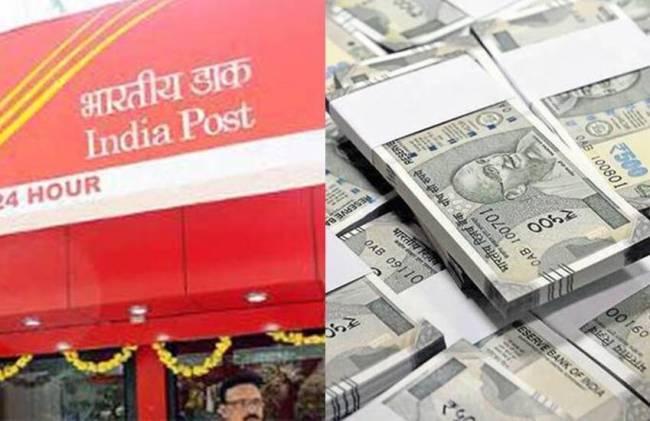If you want to invest for five years with assured returns and tax benefits, then NSC would be a good fit for you. Currently, the interest rate of NSC is 6.8 per cent, while the five-year bank FD with tax benefits is around 5.5 per cent.
Post Office Schemes are offering investors a higher rate of interest than Bank Fixed Deposits. If you want to invest money in investments giving fixed returns for saving only one year to 10 years, then small savings can be a better option.
In most major banks, the interest rate on FDs of one to 10 years is five percent to six percent. However, for senior citizens, all banks offer an additional rate of 0.5 per cent on the amount invested. The interest rate in the post office ranges from 5.5 percent to 7.6 percent depending on the scheme. The five-year NSC offers 6.8 per cent interest, while the Post Office Monthly Income Scheme offers 6.6 per cent on investment.
Apart from a slightly higher interest rate, most small savings schemes also come with tax benefits. In case of bank FDs, only special tax saving bank FDs of five years duration offer tax benefits.
We are here to tell you about five post office investment options that help you reduce your tax liability. This is because they come with tax benefits under Section 80C of the Income Tax Act, 1961.
Public Provident Fund Account: PPF is a 15 year plan. In this, money has to be deposited continuously for 15 years. One can opt out of PPF after five years or can get a loan from the fourth year onwards. One can even make partial withdrawals after the seventh year. However, an individual can open only one account in his own name, while another PPF account can be opened in the name of a minor child. A minimum of Rs 500 and a maximum of Rs 1.5 lakh (Self + Minor Account) can be deposited in PPF in every financial year. The investment made in PPF is eligible for tax benefits under section 80C and the interest earned is tax free. At present, the interest rate of PPF is 7.1 percent per annum. It is compounded annually and is paid on maturity.
National Savings Certificates: If you want to invest for five years with fixed returns and tax benefits, then NSC will be good for you. Currently, the interest rate of NSC is 6.8 per cent, while the five-year bank FD with tax benefits is around 5.5 per cent. NSC needs only lump sum payment and no further contribution is required. A fixed amount is paid to the investor on maturity.
Sukanya Samriddhi Yojana: SSY is also a great way of investment. It helps in fixing the amount especially for the needs of the daughters. The 21-year SSY scheme can be opened only in the name of a girl child below the age of 10 years. The scheme can be discontinued prematurely after five years only on medical grounds. Also, when the girl turns 18, a maximum of 50% of the balance in the previous year’s account can be withdrawn for her higher education.
Not only this, the rules allow the final termination of a girl’s marriage at any time after she turns 18 for the purpose of her marriage. At present, the SSY interest rate is 7.6 per cent per annum, compounded annually and paid on maturity. This investment option is eligible for tax benefit under section 80C and the interest earned on it is tax free.
Post Office Time Deposit Account: Time Deposit (TD) in the post office is somewhat like a bank FD. TD in post office is for one, two, three and five years, but it is only five year TD which comes with section 80C tax benefit. There is no maximum limit on this, but the tax benefit is limited to Rs 1.5 lakh. However, the interest earned is fully taxable and will be added to ‘Income from other sources’. At present, the interest rate on the five-year post office TD is 6.7 per cent per annum.
Senior Citizen Savings Scheme: Senior Citizen Savings Scheme i.e. SCSS is a five-year investment scheme, which can be a popular investment option for people who are 60 years of age and above. One can open more than one SCSS account but the combined limit is Rs 15 lakh. Currently, the interest rate on SCSS is 7.4 per cent per annum, payable quarterly. The interest earned is fully taxable and has to be added to ‘Income from other sources’.


